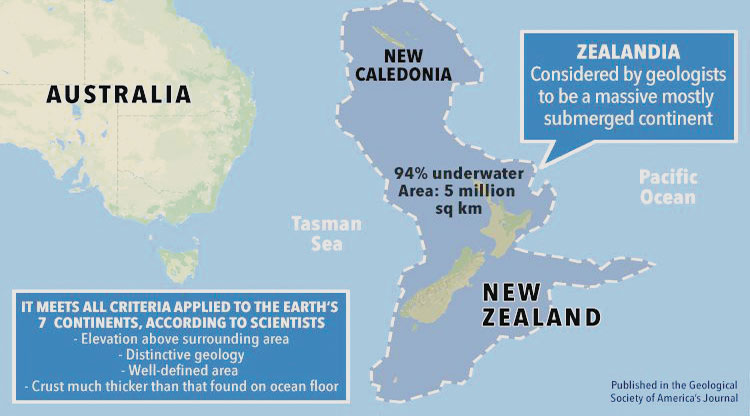

A journey to plumb the remote ocean depths has revealed that Earth does indeed have an eighth continent.
A nine-week voyage took scientists from around the world to drill and explore the seafloor off New Zealand and Australia. They found evidence of land-based fossils, revealing that the ancient landmass wasn’t always buried beneath the waves.
“Zealandia, a sunken continent long lost beneath the oceans, is giving up its 60 million-year-old secrets through scientific ocean drilling,” Jamie Allan, Programme Director in the US National Science Foundation’s Division of Ocean Sciences, said in a statement.
Earlier this year, scientists argued that the known seven continents had a long-lost brother — Zealandia, a narrow strip of land that encompasses New Zealand and lies off the east coast of Australia, and whose landmass is mostly 3,280 feet (1,000 metres) below sea level beneath the ocean’s surface. Among the evidence for Zealandia: The crust that makes up Zealandia is much shallower than the surrounding oceanic crust, and its geologic makeup looks more like continental versus oceanic crust. What’s more, a narrow strip of oceanic crust separates Australia from Zealandia, which suggests the two landmasses were separate.
However, the area is so remote that few geologists had explored the region. To answer questions about the mysterious continent, scientists aboard the JOIDES Resolution, a research drilling vessel, drilled sediment cores from six sites along the ocean seabed that makes up Zealandia. The cores plumbed 8,202 feet below the surface, revealing 70 million years of the ancient continent’s history.
The team found a treasure trove of fossils that reveal Zealandia wasn’t always under the ocean.
“More than 8,000 specimens were studied, and several hundred fossil species were identified,” expedition co-chief scientist Gerald Dickens of Rice University in Texas, said in statement. “The discovery of microscopic shells of organisms that lived in warm shallow seas, and of spores and pollen from land plants, reveal that the geography and climate of Zealandia were dramatically different in the past.”
The study is published in the journal Nature Communications.
Oman Observer is now on the WhatsApp channel. Click here



